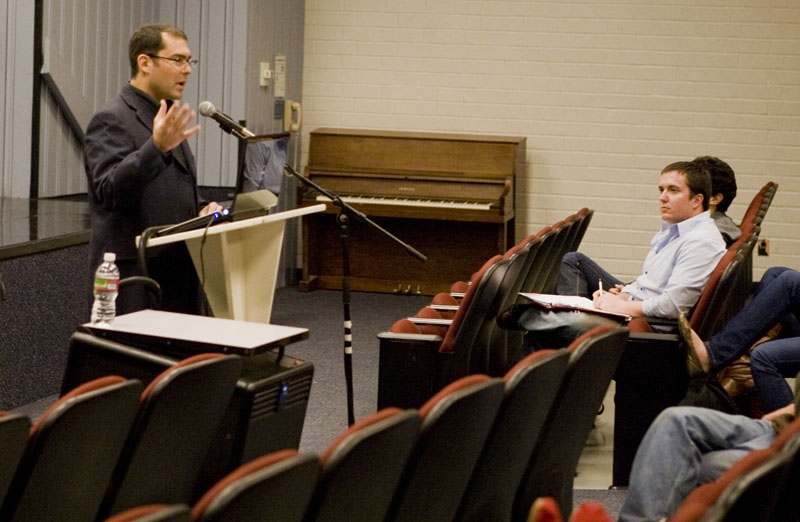Students and guests alike grappled with the origin of humanity in a three-day lecture called, “Human Evolution: Confronting the Myth” last weekend in Moats Lecture Hall.
The speakers, Biola professor John Bloom and his colleague, Fazale Rana, bolstered the Christian perspective on the origin of humanity, juxtaposing it to the secular model. The Christian theory of creation is backed by solid evidence and reasoning, they said. Throughout the series of lectures Thursday through Saturday, audience members heard the latest data on the topic of human origin through a classroom-style presentation of facts, events and statistics.
“Although there’s no model that nails it all perfectly, the Christian model can stand its own pretty well,” Bloom said. “The purpose of this workshop is to examine biblical and secular models and simply make sense of it all.”
In late 2009, news circulated from the science community concerning a fossil nicknamed “Ardi,” which seemingly pushes the existence of hominids (ancient human-like creatures) back to 4.4 millions years ago. According to a New York Times article, Ardi is not a link between humans and primates, but instead suggests that distinct evolutionary pathways between humans and primates reach further back in time than previously thought.
Classic evolutionary timelines along with dating methods performed by contemporary scientists, Peruvian mummies and DNA mutation were just a few of the topics touched on during the event. Rana, who earned his doctorate in chemistry at Ohio State University, appealed to listeners in Friday night’s lecture to test the biblical account of creation with science.
“The time and location of humanity’s beginning are certainly accommodated in the biblical account,” said Rana, who wrote “Origins of Life” a book defending the creation model for the origin of man.
Some hope further excavations will reveal an eventual link between the two evolutionary lines. Although scientists like Rana reject the possible existence of such a link, they continue to investigate such discoveries with the purpose of coordinating them within the context of the biblical model.
Patrick Brown, a grad student working toward his master’s in apologetics, said many unbelievers pose scientific objections to Christianity.
“People say science has overcome God, and I want to overcome those obstacles,” he said.







